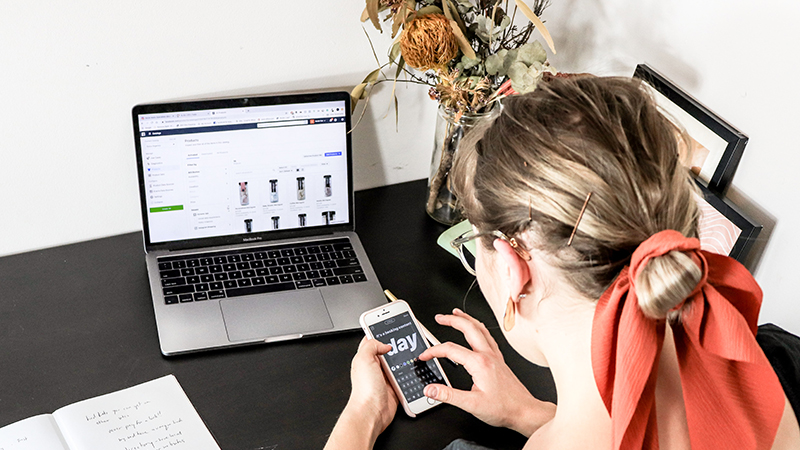Can a remote workforce still have organisational culture?
The current COVID-19 pandemic has seen many organisations move their workforce online, with employees scattered across cities and towns all working remotely.
The current COVID-19 pandemic has seen many organisations move their workforce online, with employees scattered across cities and towns all working remotely.

The current COVID-19 pandemic has seen many organisations move their workforce online, with employees scattered across cities and towns all working remotely. This is going to be a significant change for many people who are used to working around others in a face-to-face environment. But, how does this shift affect organisational culture?
According to UNSW Canberra academic, Dr Fiona Buick, what we might see is not a creation of a different culture but a reshaping of how we do things.
“Given that culture is deeply embedded and develops as a product of learning over time, I believe the core of culture will remain durable and will survive in many organisations,” Dr Buick said.
“If a culture values interaction, information sharing, working together and coordinating activities, we might just see that the way people do this differs. For example, there might be more online interactions, rather than being stifled by the mindset that we need to do everything face-to-face.”
Leaders in organisations play a central role in helping to ensure that the transition to online is smooth, on a technical level and at a productivity level but also at a cultural level.
“For most organisations it might not be about creating a culture online per se, because cultures already exist within the organisation. However, it might be about ensuring the climate is desirable.”
Sharing her own example, Dr Buick credits her Head of School at UNSW Canberra in her efforts to maintaining the sense of community with UNSW Canberra Business, now in the online environment.
“We have an established MS Teams group, virtual morning tea (weekly), research seminars and meetings. If we had a different leader who didn’t value that sense of community, at the outset of this we could have easily bunkered down and just focused on our own work – particularly since moving online created additional work.
“However, it was important to our Head of School that we maintain the sense of community as much as possible – so she sent us frequent email updates telling us everything she knows, we established the MS Teams group where we can all chat, share GIFs, information, share where we are up to etc.
“I think this has helped us maintain that sense of community and it will be interesting to see how this evolves as time goes on and whether these practices stick or the initial momentum wanes,” she said.
Dr Buick said organisation culture scholar Edgar Schein talks about how changing culture often requires a crisis of some sort and that perhaps this COVID-19 crisis is one that could reshape the way things are done in some organisations.
“It might be an opportunity to think about how the culture can change and what needs to be in place to enable this to happen – or we might find that this happens organically as a result of having to change the way work is undertaken in some organisations.
“I am looking forward to watching what happens in some of the Australian Public Service departments, as some of my colleagues have found (in their research) that in a number of departments presenteeism is prevalent – so there is a focus on people coming into the office (with it almost being a requirement) and that flexibility isn’t really valued or encouraged.
“There are espoused values around flexibility, but there is a long way to go before it is fully embodied – so perhaps this is an opportunity to demonstrate that flexibility can work and this could result in changes over time,” she said.